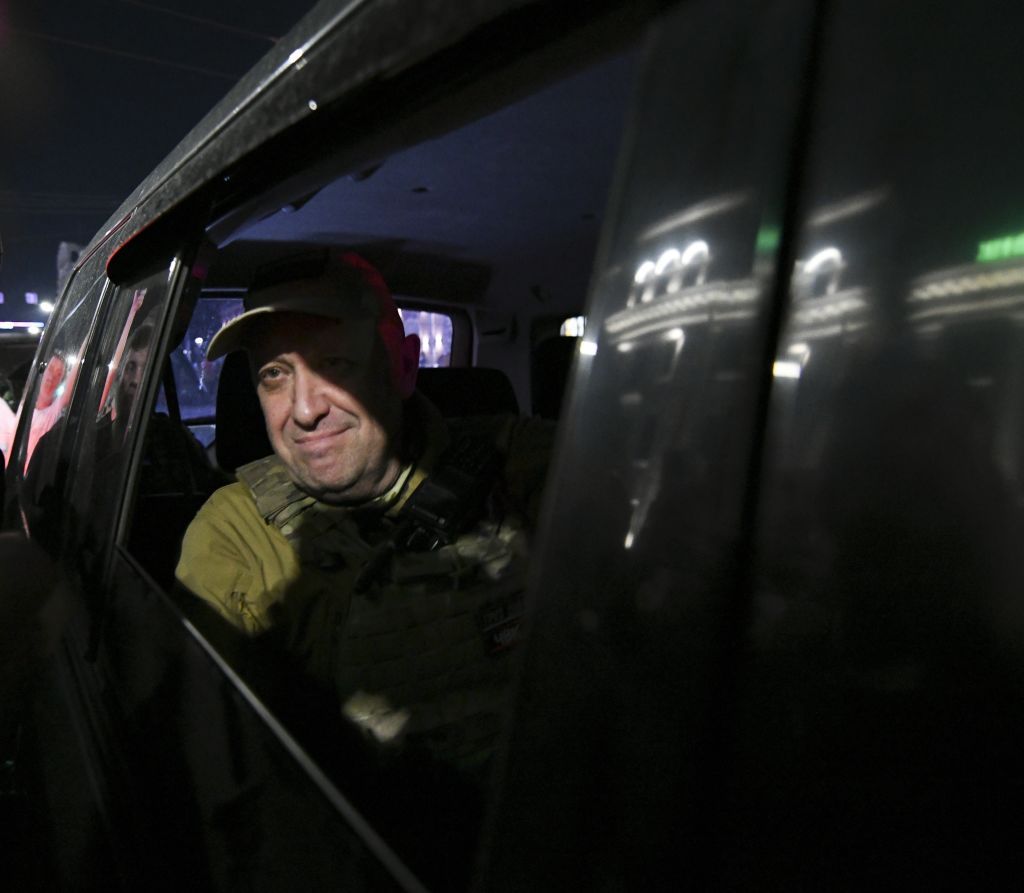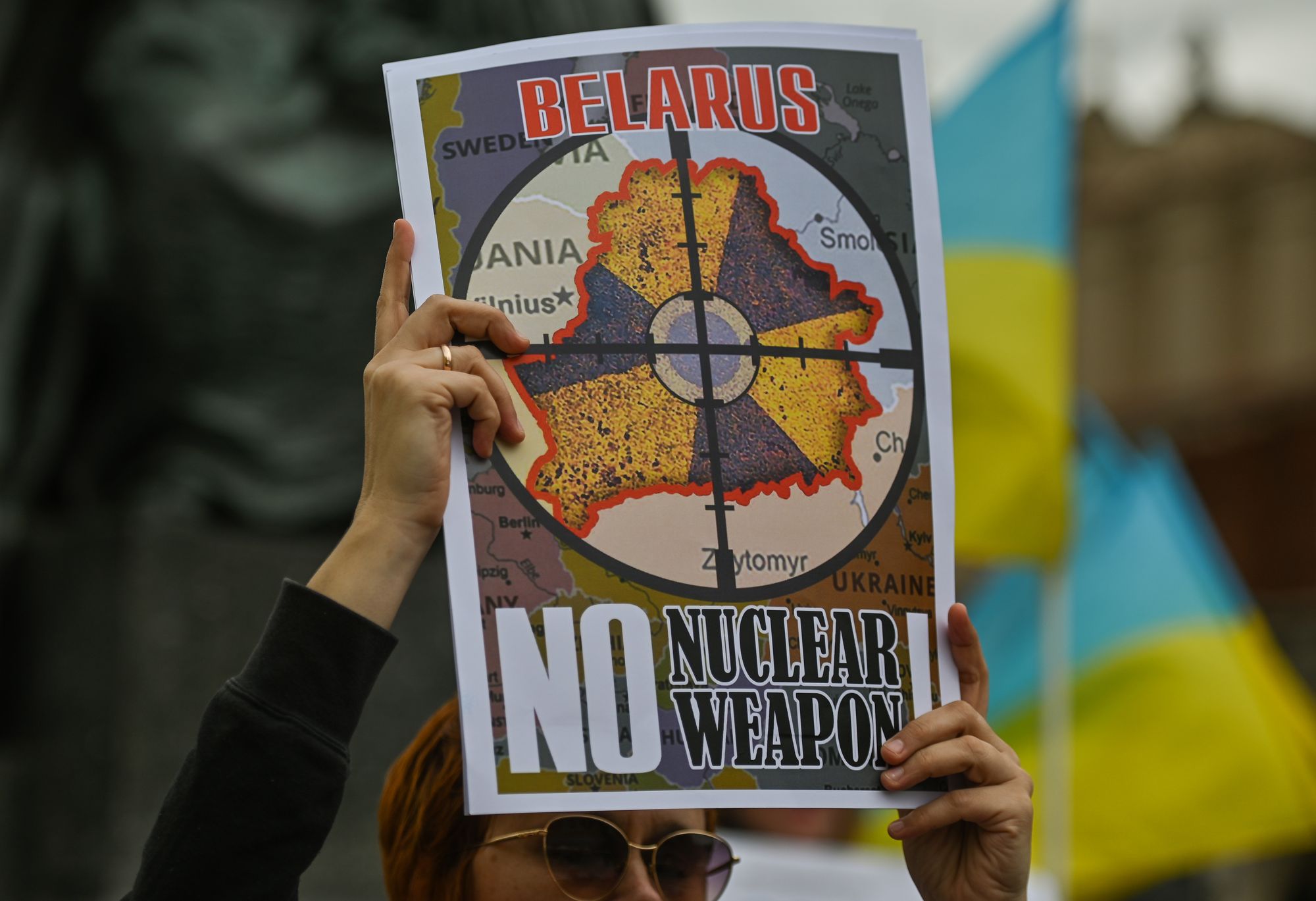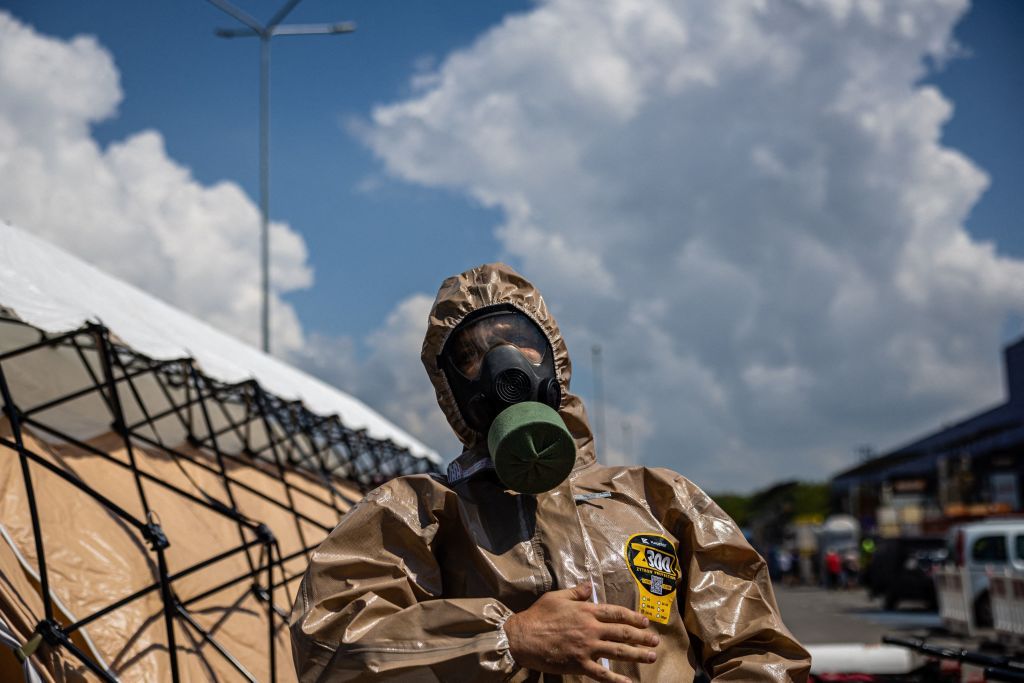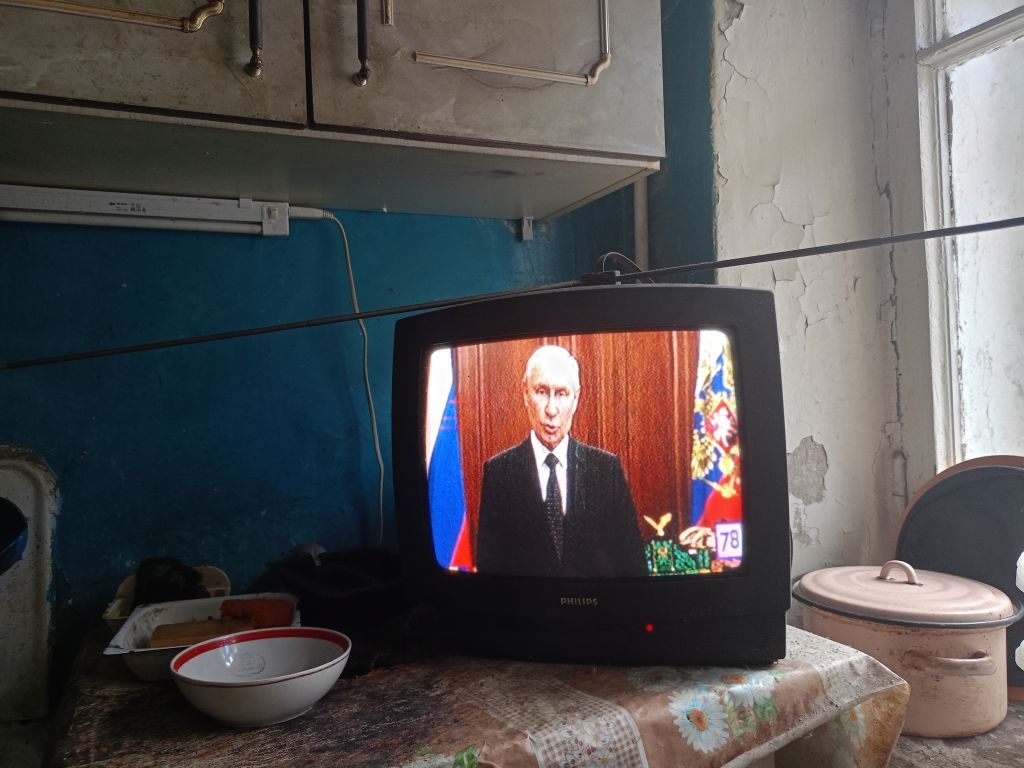MADRID – Wagner Group chief Yevgeny Prigozhin’s weekend rebellion has shone a harsh spotlight on the apparently fragile state of Russian President Vladimir Putin’s regime. While Prigozhin soon agreed to stand down, and ordered his mercenary army to halt its advance on Moscow, the warlord-led uprising highlights, yet again, the imminent and existential risks that an aggressive and unstable nuclear power poses to the world.
Since Russia’s full-scale invasion of Ukraine began last year – and especially since it became clear that Putin would not secure the quick victory he apparently expected – a nightmare scenario has loomed. Putin could be driven from power, leaving behind a fragmented Russia where various “warlords” compete for power – including control of the world’s largest nuclear arsenal.
When Prigozhin accused Russia’s military of attacking Wagner Group encampments, seized control of Russia’s Southern Military District headquarters in Rostov-on-Don, and ordered his mercenaries to march on Moscow, this scenario appeared likely. But though this particular coup did not materialize, there is no guarantee that another will not follow, especially in light of the support Prigozhin seems to enjoy among some segments of Russia’s population.
But even if Putin remains in the Kremlin, Russian nuclear weapons pose an imminent risk. After all, it is the threat of nuclear escalation that has prevented the West from intervening militarily to defend Ukraine, and has forced NATO to calibrate carefully the timing and nature of military support for Ukrainian fighters.

In fact, Putin has repeatedly reminded the West to tread lightly. In 2014 – the year Russia invaded the Donbas region of eastern Ukraine and annexed Crimea – Russia altered its military doctrine to include first use of nuclear weapons in response to a conventional attack that threatens the existence of the Russian state. Four years later, Putin reiterated his commitment to that principle. Yes, it would be a “global catastrophe,” he explained, but a world without Russia need not exist at all.
Putin has ramped up his nuclear saber-rattling. Last September, his speech announcing the annexation of four more Ukrainian oblasts was peppered with blistering denunciations of America’s military record – including its status as the only country ever to have used nuclear weapons.
Earlier this month, Putin again confirmed his willingness to use nuclear weapons to protect the “existence of the Russian state,” its “territorial integrity, independence, and sovereignty.” He also noted that he considers Russia’s massive arsenal amounts to be a “competitive advantage” against NATO. In February, Russia withdrew from New Start, its last remaining nuclear-arms-control treaty with the US.
Putin’s provocative nuclear rhetoric has lately been echoed by other high-profile Russians. In a recent commentary, Honorary Chairman of Russia’s Council on Foreign and Defense Policy Sergei Karaganov made the case for preemptive nuclear strikes. By hitting “a bunch of targets in a number of countries,” he argues, Russia could “bring those who have lost their mind to reason” and “break the West’s will.”

Even coming from a hawk-like Karaganov, that is a shocking proposition. But perhaps more worrying are similarly incendiary statements from historically moderate figures. Dmitri Trenin – the former director of the Carnegie Moscow Center, who had long been considered a voice of reason within Russia – now advocates inserting the “nuclear bullet” into the “revolver drum.” Trenin suggests that a preemptive strike could “dispel the mythology” about NATO’s collective-defense clause and lead to the alliance’s dissolution.
To be sure, some dissenting voices have emerged. Figures such as Fyodor Lukyanov, Chairman of the Presidium of the Council for Foreign and Defense Policy, Ivan Timofeev, Director-General of the Russian International Affairs Council, and Alexei Arbatov of the Russian Academy of Sciences have challenged Karaganov’s logic.
But such arguments must be couched in patriotic terms, as Russia is now gripped by Soviet-style repression, exemplified by the recent detention of Wall Street Journal reporter Evan Gershkovich and the outrageous prison sentence of opposition figure Vladimir Kara-Murza. In Russia, internal repression has historically often been linked to external aggression.
For now, Putin says that Russia does not need to use nuclear weapons – at least not to defend the Russian state’s existence. But a warlord like Prigozhin might disagree. In any case, the use of lower-yield “tactical” nuclear weapons in Ukraine appears increasingly likely. With its conventional arsenal nearing exhaustion, Russia recently delivered a tranche of such weapons to the territory of its closest ally, Belarus, and plans to send more.

In April, one-third of Russians surveyed by the Levada Center thought that their leaders were prepared to use nuclear weapons in Ukraine though 86% of Russians believe that nuclear weapons should not be used under any circumstances. Last week, U.S. President Joe Biden acknowledged the “real” threat that Russia will deploy tactical nukes.
Such a move would make the world a far more dangerous place – especially if Putin is allowed to get away with it. If the West submits to Russian nuclear blackmail, further attacks could be expected, in Moldova and beyond.
The war in Ukraine has raised the specter not only of Russia’s disintegration, but also of a nuclear confrontation akin to the 1962 Cuban Missile Crisis – one that may prove impossible to defuse. In this context, the West must use every tool at its disposal to take the temperature of Russian domestic discourse and gauge the severity of Russia’s “nuclear fever.”
Of course, as Prigozhin’s mutiny showed, anything can happen in Russia. And as Cold War Kremlinologists learned after decades of reading the tea leaves, it is impossible to determine whether public statements and debates are indicative of a new consensus among the political and military elites. But the stakes are too high not to try.
Editor’s Note: Copyright, Project Syndicate. The following article was published by Project Syndicate on June 26, 2023, and has been republished by the Kyiv Independent with permission. The opinions expressed in the op-ed section are those of the authors and do not purport to reflect the views of the Kyiv Independent.














